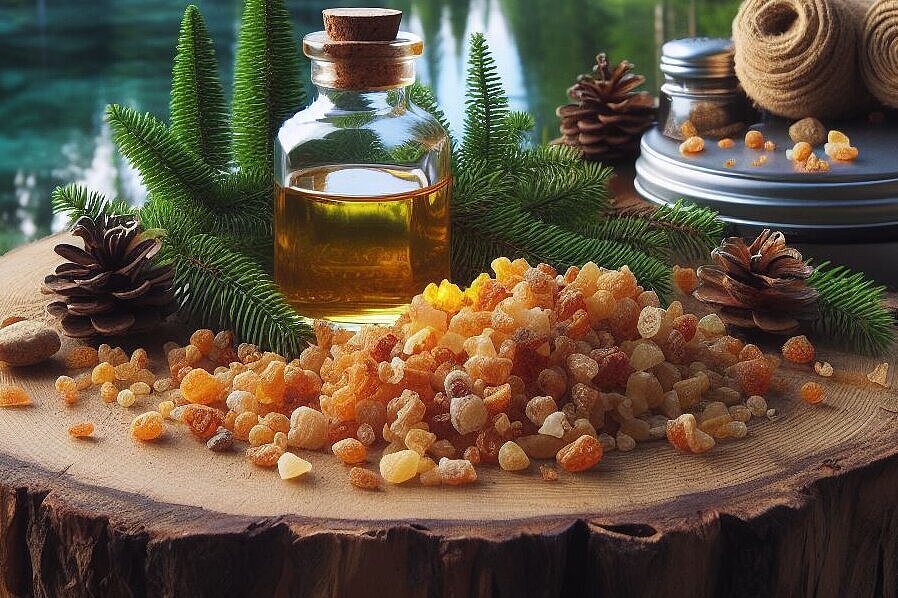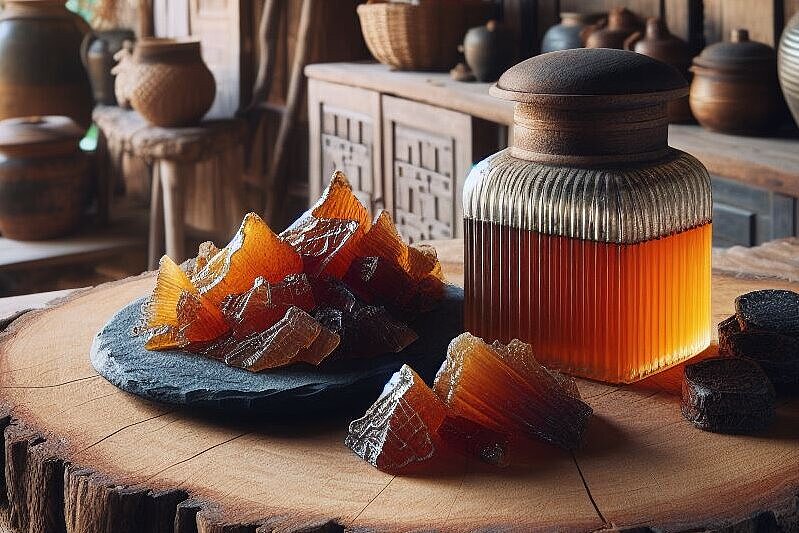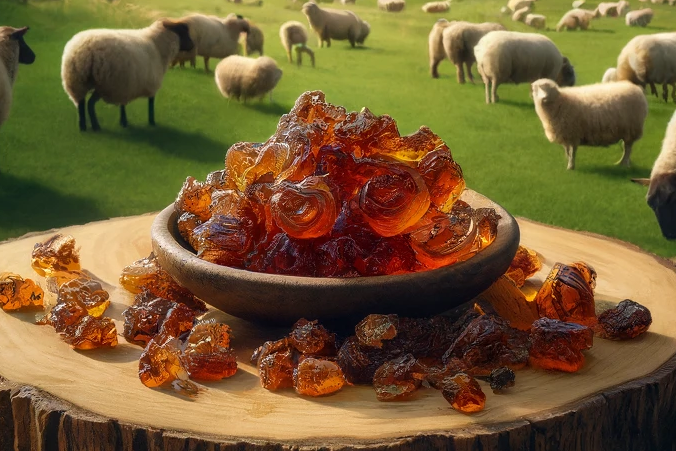Myrrh

What is myrrh?
Origin and extraction
Myrrh is the resin extracted from the cracks of trees of the Commiphora genus, which are mainly found in the dry regions of Africa and the Middle East. Even in ancient times, myrrh was highly valued for its antiseptic, anti-inflammatory and calming properties.
Areas of application
In modern applications, myrrh is not only used in aromatherapy and in the manufacture of perfumes, but also in natural medicine - for both humans and animals. For dogs, myrrh is used in particular in the form of oils and ointments for skin and coat care and to support general health.
Benefits of myrrh in dog care
Antiseptic effect
Myrrh is known for its antiseptic properties. Applying it to minor wounds, scratches or cracks in the skin can help to disinfect them and promote healing. This is particularly useful for dogs that spend a lot of time outdoors and are therefore at a higher risk of injury.
Supporting oral health
A lesser-known use of myrrh is to maintain oral health in dogs. Its anti-inflammatory effect can help alleviate gum problems and contribute to the prevention of tartar and bad breath.
Calming properties
Myrrh can also be used to soothe skin irritations and relieve inflammation. For dogs with skin problems or allergies, treatment with myrrh-containing products can bring relief and help restore healthy skin.
Disadvantages and considerations
Risk of hypersensitivity
Although myrrh is known for its healing properties, there is always a risk of a hypersensitivity reaction. Before using myrrh-based products on your dog, you should test them in small amounts to ensure no allergic reactions occur.
Quality and purity
The quality and purity of myrrh can vary greatly. It's important to choose high-quality products from trusted manufacturers to ensure safety and efficacy. Cheap or impure formulations can do more harm than good.
Lack of scientific studies
Although traditional medicine has long recognized the benefits of myrrh, there is a lack of comprehensive scientific studies demonstrating these benefits specifically in dogs. It should therefore be used with caution and ideally under veterinary supervision.
A promising natural remedy, but to be used with caution
Myrrh offers a number of interesting benefits for the health and well-being of dogs, from its antiseptic effects to promoting oral health. However, as with all natural remedies, caution is advised. Not every dog reacts the same way to myrrh, and the quality of the product plays a crucial role in its safety and effectiveness. If you want to incorporate myrrh into your dog's grooming routine, start with small amounts and pay attention to your dog's reaction. In this way, myrrh can become a valuable part of your dog's health care without taking unnecessary risks.
If you notice any signs of hypersensitivity or poisoning in your dog, you should see your vet immediately. We are not a substitute for a vet, but we try to be as accurate as possible. Every dog reacts differently and we recommend you get a second opinion or consult your vet if in doubt.
Stay healthy and take good care of your four-legged friend!😊
Similar to Myrrh
What is frankincense and how does it work? Frankincense is the dried resin of trees of the Boswellia genus, which grow mainly in Africa and Asia. The resin contains various ingredients that have...
Benzoin is the resin extracted from the trunk of the styrax tree. This resin has a long history in various cultures, where it is valued for both its healing properties and its pleasant fragrance. It...
The Storax tree, also known as Liquidambar, is a deciduous tree found mainly in the forests of Asia Minor, the Levant and America. While the tree is prized for its aromatic resin and decorative...
Ladanum is a dark, sticky resin that was traditionally obtained by combing the wool of goats and sheep that had become entangled in the cistus bushes. Nowadays, it is mainly obtained by extraction...



